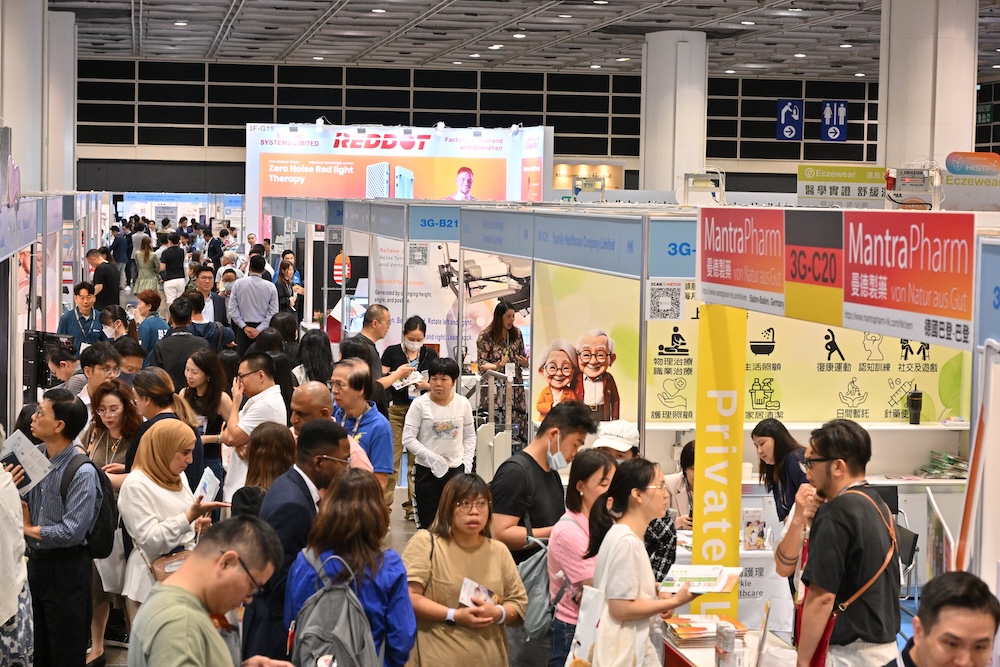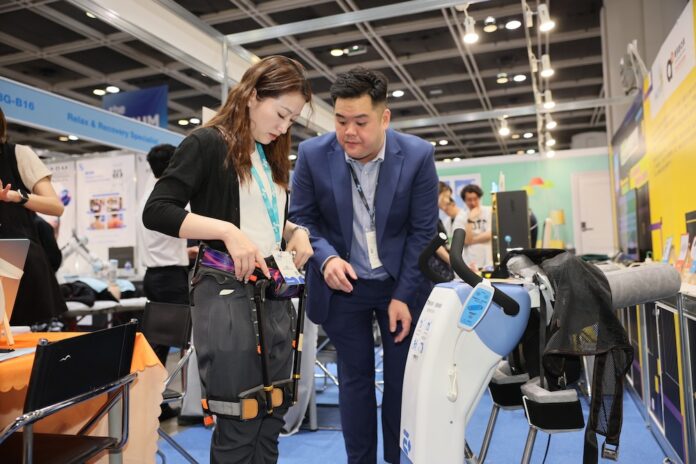Health tech leaders, stakeholders, buyers and investors from across the globe gathered in Hong Kong this week to discuss the future of healthcare.
The concurrent Asia Summit on Global Health (ASGH) and Medical and Healthcare Fair brought together innovators from all health disciplines under the common theme of ‘fostering global collaboration for a shared future’.
Dr Peter Lam, chair of the Hong Kong Trade Development Council (HKTDC) opened the ASGH saying: “The global health sector is currently facing challenges, including a resurgence in infectious diseases, coupled with the growing needs of an ageing population and ongoing health equity concerns. These issues demand urgent attention and collective action to protect communities worldwide.”
John Lee, chief executive of the Hong Kong Special Administrative Region (HKSAR) added that the summit “reaffirms Hong Kong’s pivotal role as a leading health innovation hub in the region”.
“Under the ‘one country, two systems’ principle, Hong Kong enjoys unique connectivity with both Mainland China and the world,” he said.
“As the world’s freest economy and one of the top three international financial centres, we offer an efficient, open and fair business environment with robust intellectual property protection. We maintain free flows of information, capital, goods and talent. We are also emerging as a leading hub for scientific innovation, technological advancement and world-class education,” he continued.
Prof Cao Xuetao, vice-minister of the National Health Commission of the People’s Republic of China, noted: “China continues to open up and welcomes leading foreign-owned hospitals into the market through investment or joint ventures. We hope that our global partners can further localise and upgrade their mid-to-high-end products, resulting in win-win outcomes for all.”
Additionally, Dr Tedros Adhanom Ghebreyesus, director-general of the World Health Organisation (WHO), delivered remarks at the opening session via video link.
“The theme of ASGH could not be more appropriate given the challenges facing global health at the moment,” he said.
“The WHO Pandemic Agreement has been adopted recently. It was negotiated over the past three and a half years and shows a true spirit of international collaboration for global health. By working together, we can build a healthier, safer, and fairer world for all.”
Among the plenary sessions was a discussion on how to achieve a more equitable and sustainable health system.
Prof Lo Chung-mau, secretary for health of the HKSAR government said: “A sustainable health system requires talents and enough healthcare manpower.
“While the government has been addressing the issue of manpower shortage through a multipronged strategy, by increasing the number of intakes for local universities and admitting qualified non-locally trained healthcare workers, the 2024 Policy Address announced that the government supports the plan to establish a third medical school.
“Indeed, Hong Kong has already hosted two top 30 world class medical schools but we have the ability and the need to develop the third one which shall adopt an innovative strategic positioning in pursuit of complementary development with the two existing ones.”

Prof Nancy Ip, president of the Hong Kong University of Science and Technology, added: “Universities are more than academic institutions. They are global connectors, neutral platforms, and also engines of innovation, uniquely positioned to bridge divides between disciplines, industries, and also nations.”
In another session, Professor John Hardy, known as the ‘father of Alzheimer’s disease genetic studies’, was invited to share his outlook on future research and treatment of neurodegenerative diseases.
Prof Hardy, chair of molecular biology of neurological disease at the UCL Queen Square Institute of Neurology, said: “For Alzheimer’s treatment, I think that two changes can happen quite quickly: improvements in earlier diagnosis, and development of drugs that bypass the blood vessel-based amyloid. What we want to do with drugs is slow decline. If we understand what underpins that decline, it gives us targets, and we’re very excited by some of the findings in that area now.”
The summit also co-organised two thematic sessions with the Hong Kong University of Science and Technology under the overarching theme of shaping the future of healthcare.
They focused on the potential of AI in the medical field, sharing with participants how innovative technologies are driving new breakthroughs in healthcare.
Other sessions included those focused on the future of gene and cell therapies, women-specific health gaps and the challenges of ageing populations.
Follow Health Tech World in the coming weeks for a series of special reports from our conversations with health innovators at the ASGH in Hong Kong.

